The Glaucus atlanticus, also known as the blue dragon, is a mesmerizing species of sea slug found in the Atlantic, Pacific, and Indian Oceans. These small creatures are known for their vivid blue coloration, which serves as a warning to predators that they are toxic and not a good food source. In addition to their bright coloration, Glaucus atlanticus also has venomous tentacles that can cause skin irritation and allergic reactions in humans if handled.
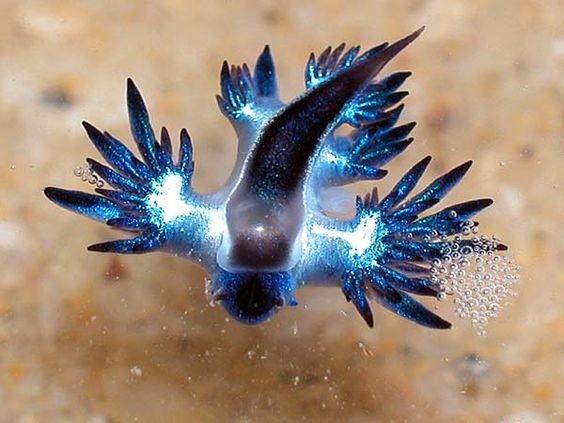
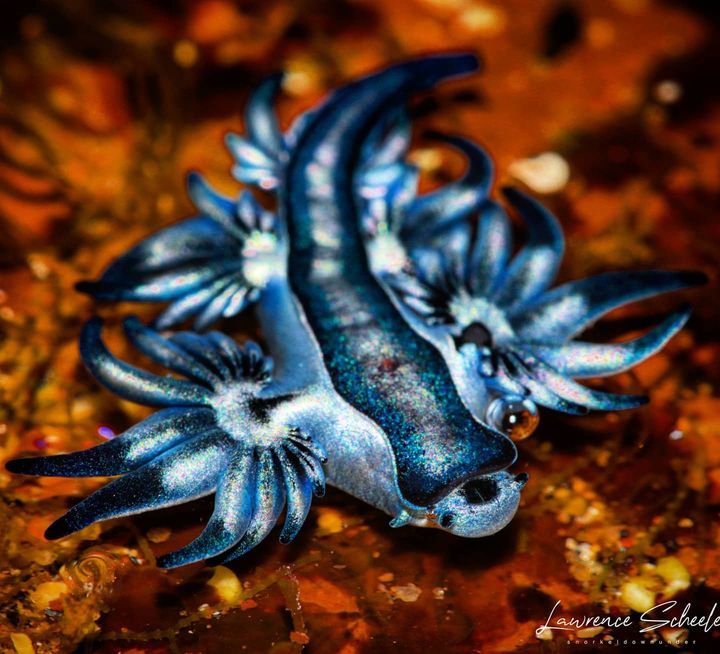
Despite their small size, Glaucus atlanticus are formidable predators that hunt and consume other species of sea slugs and Portuguese man o’ wars. They are able to store the stinging cells of their prey in their own bodies, using them as a defense against other predators. In terms of dimensions, Glaucus atlanticus typically measures only about 1.5-3.5 cm (0.6-1.4 inches) in length, but their venomous tentacles can be several times longer, reaching up to 20 cm (7.9 inches) in some cases. In addition to their venomous tentacles, Glaucus atlanticus also have a gas-filled sac in their stomachs that allows them to float on the surface of the water. This adaptation enables them to effortlessly drift with the currents and stay close to their preferred prey.
In addition to their predatory and defensive adaptations, Glaucus atlanticus also have unique reproductive behaviors. They are hermaphrodites, meaning that they have both male and female reproductive organs and can both give and receive sperm during mating. This allows them to reproduce both 𝑠e𝑥ually and a𝑠e𝑥ually, using a process called fragmentation where a piece of the sea slug’s body breaks off and grows into a new individual. This ability to reproduce both 𝑠e𝑥ually and a𝑠e𝑥ually gives Glaucus atlanticus a reproductive advantage and may contribute to their success as a species.
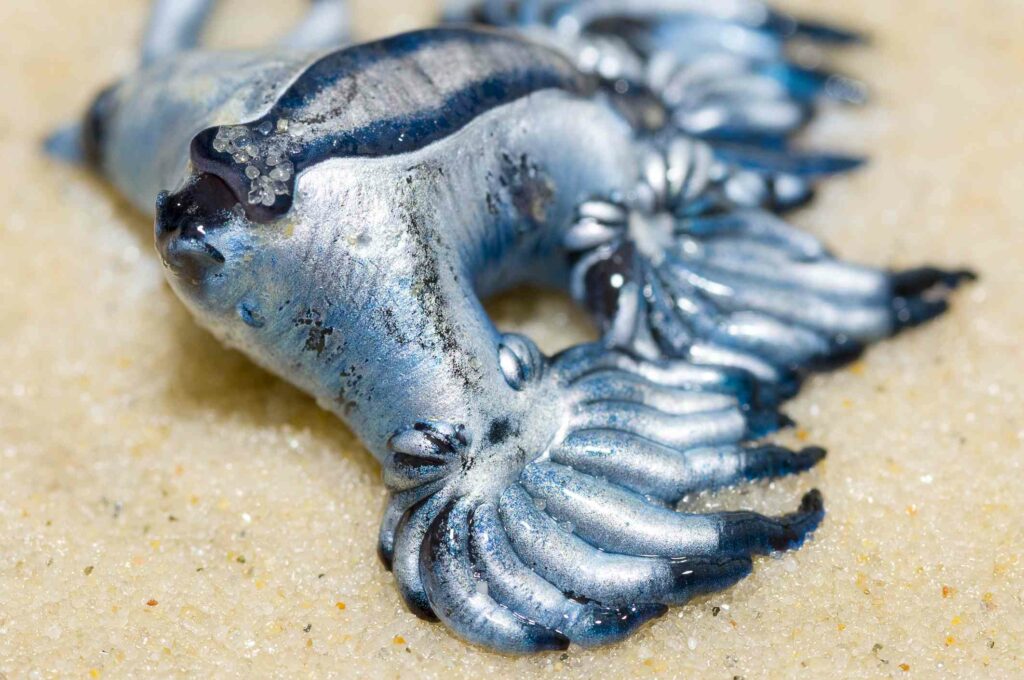
Despite their toxic defenses, Glaucus atlanticus are not immune to all threats. Like many other marine species, they are at risk of habitat loss and pollution. They are also vulnerable to the impacts of climate change, which can alter the temperature and chemistry of the ocean and affect their survival.
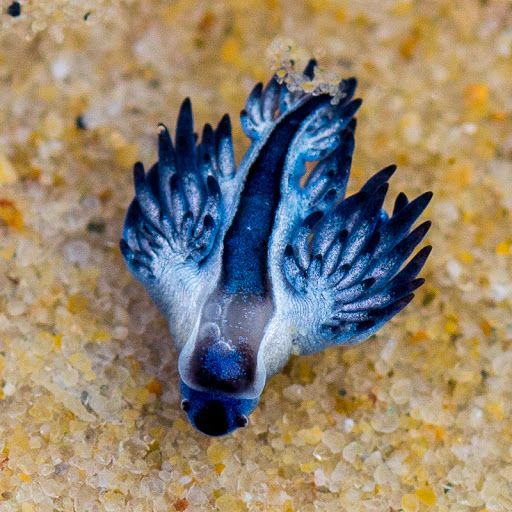
Overall, the Glaucus atlanticus is a complex and adaptable species that has evolved a variety of unique traits to survive and thrive in its ocean habitat. However, as with many other marine species, it is important to protect and preserve their environment in order to ensure their continued success.
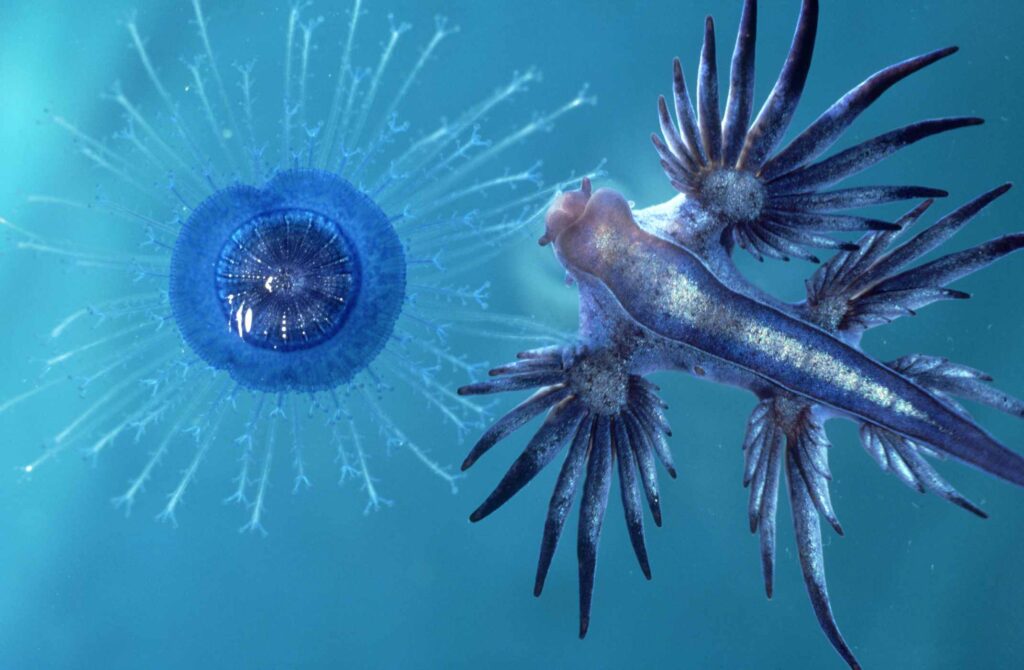
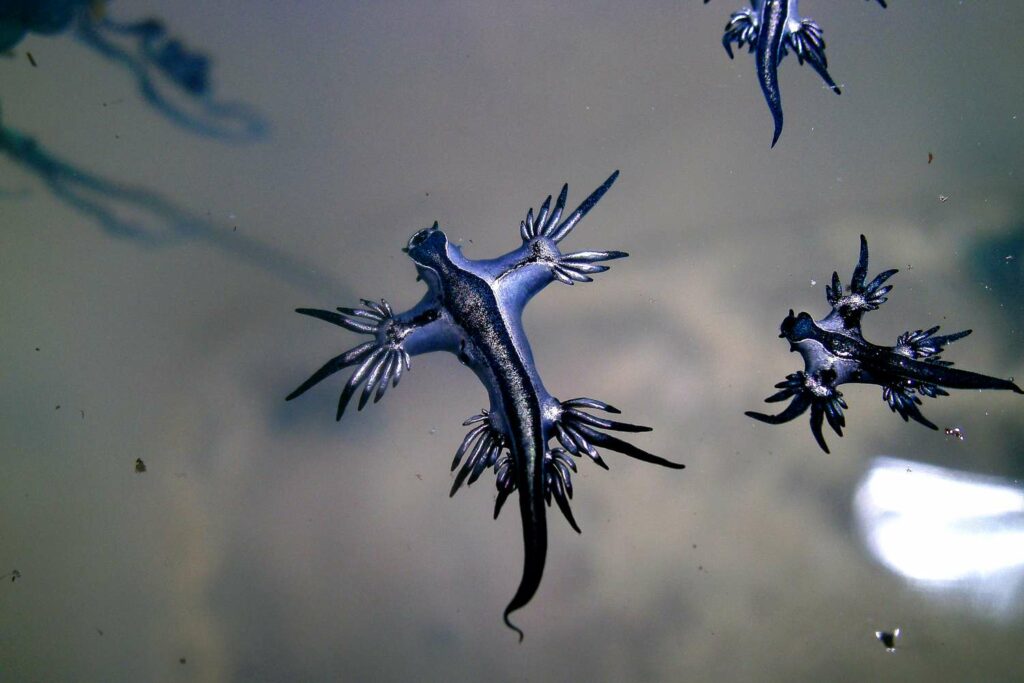
View this post on Instagram
A post shared by LAWRENCE SCHEELE (@snorkeldownunder)




